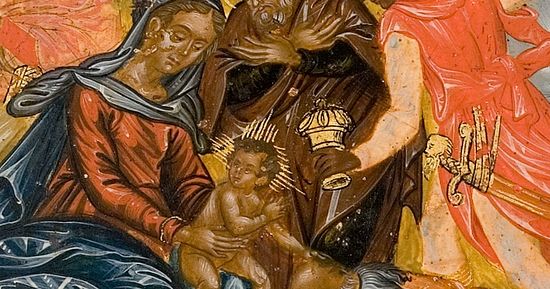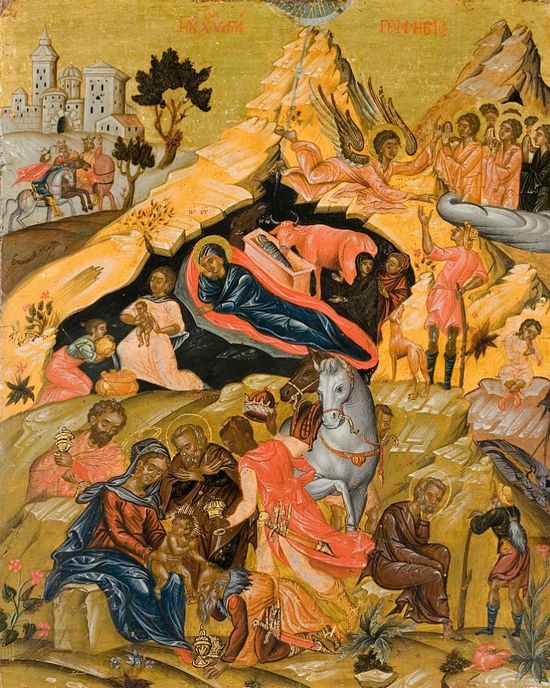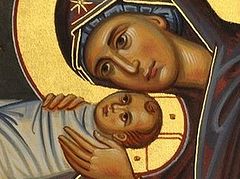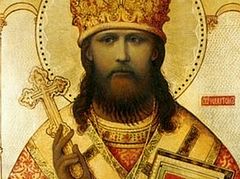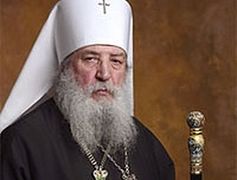Source: Theology That Sticks
December 22, 2015
What child is this?” asks the famous nineteenth century Christmas carol. It’s a question posed since Christ first entered human history two thousand years ago and one that sometimes provokes vitriolic and even violent answers today.
We’ve seen it in public tiffs over religion at home and brutal persecution abroad, but a glance to the distant past can provide both perspective and hope.
The purpose of Christmas
Few people exemplify and clarify the fight for the true meaning of Christmas as powerfully as does Athanasius of Alexandria.
Born in Egypt at the close of the third century, Athanasius thought deeply and seriously about the mysteries of the faith. While contemplating the purpose of Christ’s advent, he penned an enduring Christian classic, On the Incarnation.
“The Word of God,” said Athanasius, “came in his own person because it was he alone, the Image of the Father, who could recreate man made after the image.” This restoration of humanity by God himself in the person of Christ is the meaning of Christmas, and this understanding might have been lost had it not been for Athanasius.
Shortly after Athanasius penned his book, the popular and winsome priest Arius emerged, teaching that Christ was not actually God in the flesh. “What child is this?” Not God, answered Arius.
The fight for Christmas
The emperor called a council to resolve the issue and keep the church from splitting over Arius’s teaching. Athanasius attended.
The atmosphere was tense and heated. St. Nicholas (yes, that St. Nick) famously socked Arius during one session. But from the turmoil arose agreement about the divine nature of Christ, affirming the view that Athanasius advanced in On the Incarnation.
Arius was anathematized and his supporters exiled. But despite appearances, the issue was far from settled.
Shortly after the council, the bishop of Alexandria died and Athanasius was ordained to the office. The weakened Arian faction worked against him from the start. After false charges were levied against him, Athanasius appealed to the emperor. But the balance of power was shifting, and the new bishop was banished.
Thus began many periods of exile for Athanasius, who tirelessly defended the orthodox view against the Arian heresy. It is impossible to adequately summarize the weight of opposition he faced. By political maneuvering and alliances with subsequent emperors, the Arians came to power and brought terrible persecution, the likes of which only pagan powers had ever before exercised.
The faith of Christmas
One night in February 356 Athanasius presided at a midnight vigil. Other than the prayers and psalm-singing the room was quiet.
Suddenly, amid the flickering candlelight, armed men burst inside, shot arrows, and slashed with their swords. Athanasius was almost killed in the struggle, but his supporters secreted him out of the church.
Ransacking was widespread. Churches were seized. Deacons and priests were killed. Widows were beaten. Taking refuge in the desert with monks, Athanasius led his fugitive church from hiding. In 357 he wrote his scattered and discouraged flock:
May God comfort you. I know . . . that not only this thing saddens you, but also the fact that while others have obtained the churches by violence, you are meanwhile cast out from your places. . . . They are, it is true, in the places, but outside of the true Faith; while you are outside the places indeed, but the Faith, within you.
The faith within you was the whole point. To betray it would reenact the betrayal of Adam, the very betrayal that Christ’s Incarnation reversed.
Whatever evil and danger befall the faithful, Christ’s advent restored communion with God because God himself came and walked among us.
The gift of Christmas
Enemies of that faith seem at times to prevail, but the gift of Christmas is something they can never steal or destroy. Despite all odds, that faith eventually triumphed and Athanasius with it. Despite a lifetime of persecution for Christ, he died peacefully of natural causes in old age.
“What child is this?”
It is God in the flesh, coming in love to restore his creation. And we can celebrate Christmas today because of the life and sacrifice of Athanasius the Great so many years ago.

